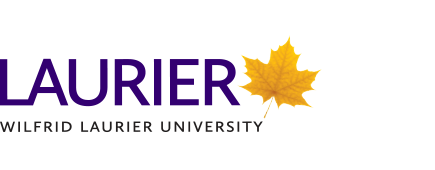Fire Safety
Fire Alarm Procedures
When you hear a fire alarm, it’s important that you get out quickly and stay out. In a fire situation, you may only have two or three minutes to get out safely.
When you hear the alarm:
- Proceed quickly and safely to the nearest exit.
- Evacuate the building even if you suspect a false alarm. If it is safe to do so, shut down experiments and hazardous operations, close windows, and doors.
- DO NOT use elevators during an alarm.
- Move to the designated safe area as indicated by Emergency Wardens (red caps) or DONS.
Do not enter the building, even if the alarm stops ringing. Wait for permission to enter from the Fire Department, Special Constable Service, DON or Building Evacuation Coordinator/Emergency Warden.
If you smell smoke, see flames, or are alerted to fire:
- Vacate area and close doors.
- Activate nearest emergency pull station. Attempt to extinguish the fire only if you are trained and can do it safely.
- Evacuate the building. (DO NOT use elevators). Use an alternate exit if you encounter smoke or fire.
- Call Special Constable Service (via SAFEHawk or 519-885-3333 Waterloo & Kitchener or 519-770-3778 Brantford) and 911 from a safe location.
- Meet Emergency Wardens (red caps) or DONS and the Fire Department outside at the designated safe area. Give them as much information as possible regarding the emergency.
- Report the location of anyone still inside the building to the Fire Department.
- Report all fires, even those that appear to be out.
If unable to evacuate:
Note: Persons requiring an individual evacuation plan, please contact the AODA Officer at accessibilty@wlu.ca
- Shelter in place or move to an area of refuge (if applicable).
- Close all doors and windows, they can provide good protection from smoke and fire. Use available materials to seal door and air ducts.
- Call Special Constable Service (via SAFEHawk or 519-885-3333 Waterloo & Kitchener or 519-770-3778 Brantford) and 911 giving your location and circumstances. Leave your name and phone number so you can be given updates if needed.
- If smoke enters the room, stay as low as possible as heat and gases tend to rise.
- Signal your position at a window if possible.
See also our information on smoking.
Open Flames on Campus
Open flames, such as candles used for special events, are not permitted in Laurier buildings unless they are approved prior to an event. To request permission to use an open flame on campus, contact Emergency Management and Fire Safety Officer. Refer to Laurier’s Policy 7.12: Open Flames on Campus.
Indigenous Use of Traditional Medicines
Four sacred medicines (tobacco, sweet grass, sage and cedar) are traditionally used in Indigenous medicines as a part of Indigenous culture and heritage. The purpose of the policy is to ensure that the use of such medicines is done in the safest possible manner. Refer to Laurier’s Policy 7.14: Indigenous Use of Traditional Medicines.
To request permission to smudge on campus, fill out one of the following forms:
Contact: Emergency Management and Fire Safety Officer.
Kitchen Fire Safety
Unattended cooking remains the number one cause of home fires in Ontario. With many students cooking for the very first time, it’s not only important to know how to prevent a kitchen fires but also how to extinguish one. Never leave the stovetop unattended when you’re cooking. If you ever have a pot on the stove fire, remember the following:
- Follow the fire alarm procedures and activate the fire alarm system by pulling an emergency pull station.
- Call 911 and Special Constable Service.
- Slide a lid over the pan and turn off the burner.
- Keep the pan covered until it’s completely cool.
Never attempt to extinguish a grease fire with water!
For more information on how to practice kitchen fire safety, and to obtain a kitchen fire safety tip sheet (English, French and Mandarin are available), contact Emergency Management and Fire Safety Officer. Tip sheets are also available at the Department of Residence and Laurier International.

